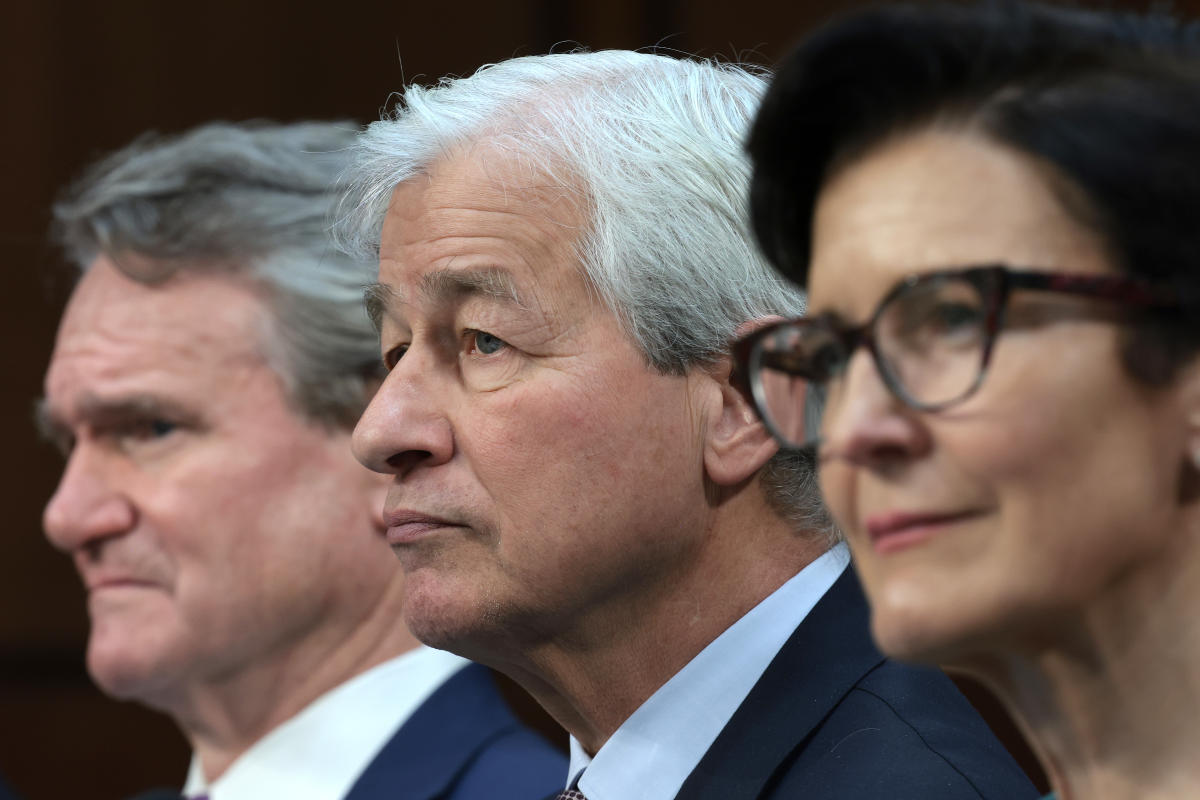U.S. Banks Show Resilience Amid Financial Turbulence from Tariffs
- Small Town Truth

- Apr 21
- 2 min read

Amid the ongoing financial turbulence linked to President Trump’s tariffs, major U.S. banks are reporting encouraging results that suggest resilience in consumer spending and overall economic stability—at least for the time being. Recent earnings disclosures from five prominent banks reveal a notable growth in both profits and revenue.
Bank Performance Amid Market Volatility
In a recent analysis, bank analyst Saul Martinez from HSBC commented on the situation, stating, “The message has really been that the sky is not falling.” Over the past week, JPMorgan Chase, Bank of America, Citigroup, Morgan Stanley, and Goldman Sachs collectively saw net profits rise to $35 billion, marking a 13% increase compared to the same quarter last year. This impressive figure was bolstered by a 17% rise in trading revenue, surpassing $36 billion as financial markets reacted to Trump’s initial tariffs introduced in February and March.
For ongoing updates and insights on the impacts of these tariffs, visit The latest news and updates on Trump’s tariffs.
Consumer Spending and Bank Outlook
Despite fears surrounding economic turbulence, banks are reporting that consumers are maintaining their spending levels. Both lending defaults and business conditions appear stable, leaving financial institutions unperturbed enough not to alter their earnings projections for the forthcoming months. Analyst Mike Mayo from Wells Fargo expressed surprise at the persistent strength across all five banks, suggesting that recent economic fluctuations may only act as temporary setbacks, provided that policy adjustments are swiftly implemented to ease uncertainties.
Voices of Caution and Optimism
However, caution exists among leaders of these institutions. Goldman Sachs CEO David Solomon pointed out that the likelihood of a recession has “increased,” while JPMorgan CEO Jamie Dimon described the economic landscape as one facing “considerable turbulence.” He warned that such conditions could lead to declining earnings and decreased stock values.
Conversely, CEOs from other banks, such as Jane Fraser of Citigroup, maintained a more positive outlook. Fraser emphasized, “When all is said and done, and longstanding trade imbalances and other structural shifts are behind us, the U.S. will still be the world’s leading economy.” Additionally, Bank of America’s Brian Moynihan reiterated that their research team does not foresee a recession happening in 2025, highlighting ongoing consumer contributions to economic activity.
Investment Banking and Future Precautions
In an unexpected turn, some banks reported a surge in investment banking income during the first quarter, despite predictions of a slowdown. Executives noted that while certain deals are momentarily on hold due to uncertainty, these pauses are viewed as brief rather than indicative of a longer-term contraction. Morgan Stanley’s CEO Ted Pick described this situation as a “pause versus delete” scenario.
Nonetheless, signs of strategic caution are evident. Major banks have set aside $8.4 billion in provisions for anticipated loan losses— an increase of 29% year-over-year and a 9% rise since the previous quarter. CFRA Research analyst Ken Leon summed it up, stating, “We’re still in a cloudy period. It’s going to be choppy from here, and it’s exhausting.”
For further in-depth analysis into stock market trends, visit this link for the latest stock market news and events affecting stock prices.
To stay updated with the latest in finance and business, visit Yahoo Finance.
.png)